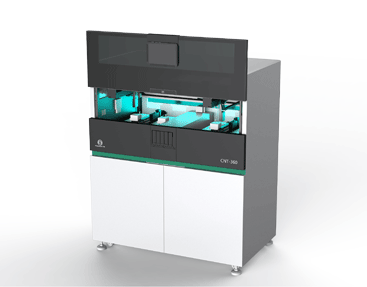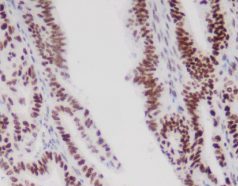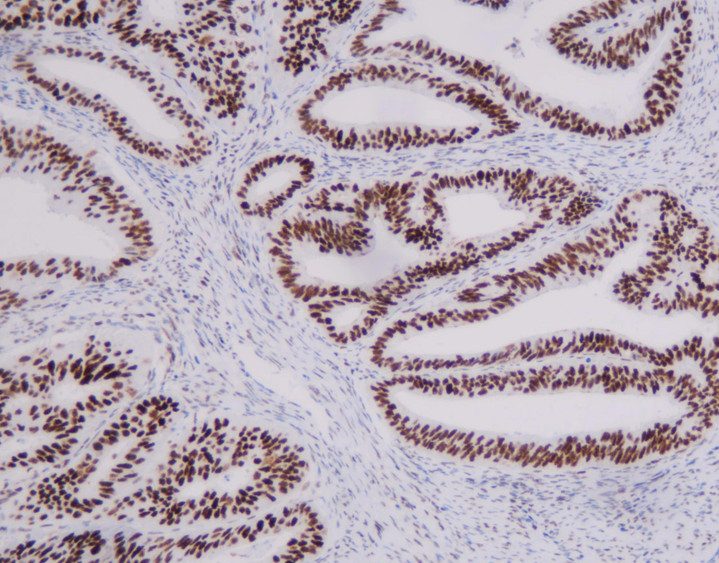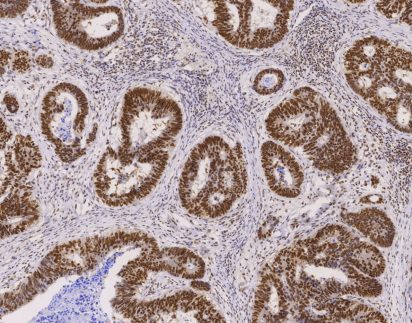Understanding IHC: Essential Applications in Modern Hospitals

By admin
Introduction to Immunohistochemistry (IHC) Technology
To start off, immunohistochemistry may be rightly viewed as one of the most important tools in the array of mediatory diagnostic devices advanced nowadays, particularly in pathology and oncology. This technology is based on the use of antibodies created to detect and target certain antigens in the tissue sections. Therewith, the visualization of the latter is beneficial in several ways as it contributes to the gain in the understanding of the tissue architecture and assists in the precise disease diagnosis. It is almost impossible to overestimate the importance of IHC in actual medical practice; it is vital for the implementation of personalized medicine, i.e., the provision of medical treatment tailor-made in relation to the individual patient’s characteristics.
IHC has a historical evolution from simple staining into complex molecular methods that use the specificity of antibodies. In the initial stages, some works aimed to find relevant antibodies that could give reliable results. All these efforts simplified the work of pathologists and oncologists by disclosing the nature of the tumor and its specific peculiarities. Later, the technology was improved and transformed into the method that is known today. In my work, I should consider the historical evolution of this method and the modern tendencies that are characterized by automation and process simplification. For instance, Celnovte is a company that developed numerous reagents and automation systems that can be efficiently used in the majority of hospital laboratories.
Core Applications of IHC in Hospital Settings
Diagnostic Pathology Using IHC
Diagnosing matters is the most important application of IHC in hospitals. With the help of specific antibodies, pathologists can detect and classify various cancer types, which is crucial for proper treatment planning. IHC is especially valuable in determining whether a particular tumor closely resembles a different type, as different types of neoplastic tissues require distinct treatments. Furthermore, IHC helps to identify infectious diseases once specific markers indicate the presence of a pathogen in the tissue sample.
The article is about how many hospitals rely on the precision of IHC in diagnostics. The article also gives examples of hospitals that use the IHC in diagnostics. Finally, the article discussed a program through which healthcare facilities use Celnovte’s IHC reagents to enhance their diagnostic accuracy and turnaround time. This article supports the research question in one way: it gives statistics showing the number of hospitals that use IHC in diagnostics. The article also supports the research question because it comprehensively describes IHC reagents. For example, the article explains that through a comprehensive range of antibodies and staining kits for its IHC reagents, healthcare facilities are able to upscale the turnaround time and accuracy of their diagnostics.
Prognostic Factors Determination
In addition to the diagnostic purpose, IHC plays an important role in defining prognostic features. Thus, predictive markers that are identified by IHC tests can be used by healthcare providers to determine whether the given patient is likely to respond to the administered treatment, which helps in the prescription of more effective targeted therapies. Levels of expression of a number of proteins detected through IHC can influence patient outcomes in regard to these markers and, subsequently, the choice of treatment that will likely improve survival rates.
The process of tracking disease advancement is also essential for using IHC in clinical practice. Frequent testing of tissue samples allows physicians to detect alterations in the expression of particular markers. This may mean that the tumor is changing or that the patient is developing resistance to the treatment. Celnovte’s products ensure that hospitals have the proper equipment to perform these tests regularly. This way, healthcare workers can be aware of their patient’s needs and take timely action.
In summary, the IHC remains a cornerstone of contemporary hospital-based diagnostic and prognostic activity. Its use ranges from the precise identification of cancers to the determination of reactive patterns and the most appropriate form of treatment, from one-off sending of specimens to the receipt and specialist interpretation of pathology and the ongoing management of patients. Celnovte’s description of what aid in such circumstances might consist of illustrates the use of high-quality reagents and technology to improve patient care.
Integration of CELNOVTE IHC Products in Modern Hospitals
Overview of CELNOVTE’s Advanced IHC Solutions
CELNOVTE is a well-known provider of a wide range of advanced immunohistochemistry products, which are specifically designed for today’s modern hospital environment. By using the latest technological achievements the company’s reagents can improve the accuracy and reliability of IHC applications. CELNOVTE product line covers all needs of pathologists and clinical laboratories, which can benefit from different antibodies, detection kits, and protocol platforms. Thus, thanks to such commitment to innovation, the members of the healthcare industry can be sure that executing IHC testing in hospitals is designed to address routine and particular diagnostic challenges in the best way.
The focus on high-quality manufacturing standards has led to reagents that are optimized such that the performance remains definitive across divergent laboratory options. Such support that dovetails with the system being used means CELNOVTE is an added asset to the hospital by providing solutions that work in integration with the workflow instead of disrupting it. For hospitals that aim to improve their diagnostic performance, such focus on quality and support for professionals’ innovation means the company has positioned itself as a key partner.
Unique Features of CELNOVTE’s Product Line
High Sensitivity and Specificity Reagents
In practice, the unique features of CELNOVTE, Inc.’s IHC reagents are the prime factor contributing to their reliability. It is stated that “all reagents have been formulated to provide high sensitivity and specificity to detect target antigens in tissues”. The validity of this statement is fundamental since the sensitivity and specificity of a product help become more exact in a given application. Due to these characteristics, the probabilities of both false-positive and false-negative results are reduced. Making mistakes in diagnosing the patient’s condition typically leads to incorrect treatment choices. CLNOVTE’s IHC reagents are highly sensitive products, that help detect low-abundance antigens that can serve as critical indicators of different types of tumors.
CELNOVTE, in addition, uses highly specific monoclonal and polyclonal antibodies that feature superior binding affinity. Understanding the staining procedure in such a manner and ensuring that the reagents include components with exceptional characteristics that allow for clear interpretations of the results is another way in which the use of these products increases the quality of histological assessment. Hence, the implementation of this company’s high-sensitivity reagents is certainly linked with efficient patient management outcomes for the hospitals that choose to use its diagnostic technologies.
Quality Control Standards and Reliability
CELNOVTE pays close attention to quality control standards and creates a comparable benchmark in the IHC domain. All products go through testing and validation processes that are strict while ensuring that any reagent is consistent, robust, and works in the intended way. For hospitals, that means that CELNOVTE’s reagents do provide test results of the highest quality across different types of specimens and conditions. Thus, CELNOVTE is a reliable partner for any hospital as it focuses on providing quality control standards that can meet the customers’ needs.
It should be noted that the quality of CELNOVTE’s products is strictly controlled at all stages of manufacturing, including the supply of raw materials. Nevertheless, the supplier of reagents seeks not only to provide decent reagent options to the hospital but also to work closely with those who provide medical oversight and insight, that is, medical staff. Doctors and scientists are involved in the development and improvement of IHC protocols that serve hospital needs. The approach ensures the reagents’ consistency with current scientific research and practice standards. The use of the company’s reagents in the hospital is influenced by the fact that the raw materials are in line with the acquisition market’s visible price. On the one hand, this means that hospitals can afford high-quality reagents. On the other hand, the price constraint may undervalue the contribution of the hospitals that buy the reagents to the company’s profits. Thus, CELNOVTE’s reagents align with the acquired materials in practice guidelines and prices on the acquisition market.
Bridging Theory and Practice: Practical Implications for Hospitals
Training and Implementation of IHC Protocols
In order to implement IHC technologies, primarily those manufactured by CELNOVTE, the training and practical strategies should be applied in the hospital. They include working out the details of the technology, including tissue sample preparation, staining, and interpretation of the received results. As the official website of CELNOVTE states, a variety of training resources are offered to hospital personnel to ensure that they are equipped to use the products.
It is evident that easy-to-use protocols could greatly improve the laboratory routine. As such, thanks to their products, CELNOVTE company provides highly detailed guides and instruction materials that are easy to use and suit their IHC solutions the best. When laboratory procedures are standardized, both diagnostic precision and laboratory collaboration are improved. In these terms, applying IHC protocols provides extensive benefits to CELNOVTE’s advanced IHC solutions.
Insights from Leading Hospitals Utilizing CELNOVTE’s Technologies
Leading hospitals that have implemented CELNOVTE’s IHC technologies provide a deeper understanding of the real use of these products and the difference they have made. For instance, those hospitals note an increase in the ability to diagnose problems, which contributes to a more accurate staging of cancer and a better prognosis for patients. Given the differences between various subtypes of cancer-based on IHC results, oncologists can provide treatment that is tailored to patients and increases their chances in terms of survival and full recovery.
Moreover, hospitals that apply CELNOVTE’s IHC products have reported decreased turnaround times for the receipt of diagnostic results. CELNOVTE’s reagents are highly efficient, which aids in the acceleration of laboratory processes and, therefore, provides quicker access to the necessary information for appropriate clinical decisions. Because of the current ability of healthcare to decrease diagnostic delays, CELNOVTE’s products are valuable and serve a significant role in this trend.
In addition, CELNOVTE’s collaboration with hospitals also creates a mutually reinforcing environment for continuous improvement and innovations. The feedback of the clinical users also facilitates the product development of CELNOVTE in a timely manner that can keep up with the pace of modern medical needs. To shoulder the manifold challenge of precision medicines, CELNOVTE as a high-throughput diagnostic vendor can stand as support to hospitals, proving useful and effective for meeting current diagnostic requirements.
CELNOVTE, with its quality IHC produces, is, no doubt, useful for improving healthcare overall. It helps hospitals obtain the tool for yielding results that they can rely on and make the right decision in terms of patients’ treatment. It is an IHC assay that can guarantee accurate outcomes, which are essential for better patient care and ultimately better health.












